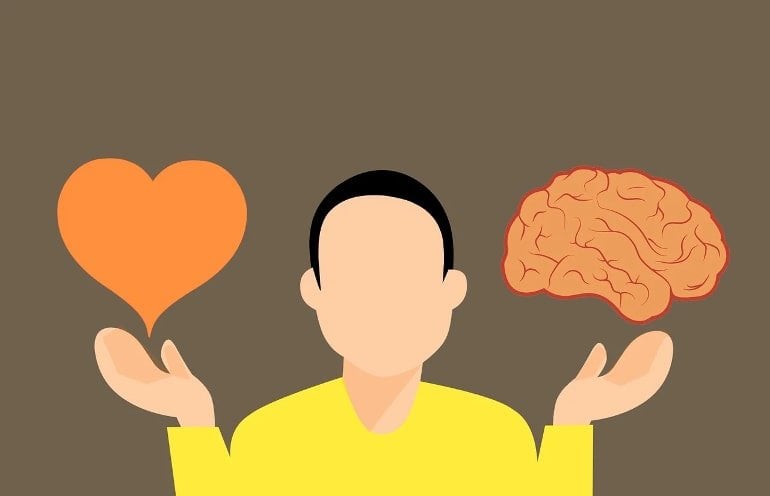Summary: Researchers have discovered high blood pressure, depression, and emotion-related brain activity are linked to the development of hypertension.
Source: Max Planck Institute
Our mental health and that of our cardiovascular system have a complex interaction.
A recent study from the Max Planck Institute for Human Cognitive and Brain Sciences (MPI CBS) in Leipzig, Germany, now shows the links between higher blood pressure and depressive symptoms, well-being and emotion-related brain activity that may be relevant to the development of hypertension.
Several studies have already reported a link between mental health and hypertension, with mixed or even contradictory results.
In their study, the researchers from MPI CBS have now deeply analyzed the relationship between mental health, higher blood pressure and hypertension in mid-60-year-olds, using extensive psychological, medical and imaging data from the elderly population.
“To obtain statistically robust answers, we used the extremely large sample size of the UK Biobank with over 500,000 study participants. We were able to show that higher blood pressure is associated with fewer depressive symptoms, greater well-being and lower emotion-related brain activity—which is surprising at first, but can be explained by our other findings,” reports Lina Schaare, first author of the study.
Interestingly, the researchers also find that the threat of high blood pressure (hypertension) is linked to poorer mental health, even years before hypertension is diagnosed.

“In the clinic, we observe that those affected often feel tired and fatigued and then do not take their medication against the higher blood pressure, because this additionally hits their mood,” explains Arno Villringer, who heads the Department of Neurology at MPI CBS and is the study’s last author.
“On the other hand, we suspect that in people who feel good mentally with temporarily higher blood pressure, reinforcement learning ultimately contributes to the development of permanent high blood pressure.
This is because the pain threshold also increases with higher blood pressure. This applies not only to physical pain, but also to social pain or greater stress. So they endure the pain or stress and then ten years later are diagnosed with hypertension.”
The researchers believe these findings lay the groundwork for new thinking about the link between mental health and the causes of hypertension.
For the widespread diseases of depression and hypertension, such a change in perspective could enable new approaches to therapy and prevention that focus on the interaction of mental and physical health.
About this psychology research news
Author: Press Office
Source: Max Planck Institute
Contact: Press Office – Max Planck Institute
Image: The image is in the public domain
Original Research: Open access.
“Associations between mental health, blood pressure and the development of hypertension” by H. Lina Schaare et al. Nature Communications
Abstract
Associations between mental health, blood pressure and the development of hypertension
Multiple studies have reported a link between mental health and high blood pressure with mixed or even contradictory findings. Here, we resolve those contradictions and further dissect the cross-sectional and longitudinal relationship between mental health, systolic blood pressure, and hypertension using extensive psychological, medical and neuroimaging data from the UK Biobank.
We show that higher systolic blood pressure is associated with fewer depressive symptoms, greater well-being, and lower emotion-related brain activity. Interestingly, impending hypertension is associated with poorer mental health years before HTN is diagnosed. In addition, a stronger baseline association between systolic blood pressure and better mental health was observed in individuals who develop hypertension until follow-up.
Overall, our findings offer insights on the complex relationship between mental health, blood pressure, and hypertension, suggesting that—via baroreceptor mechanisms and reinforcement learning—the association of higher blood pressure with better mental health may ultimately contribute to the development of hypertension.







